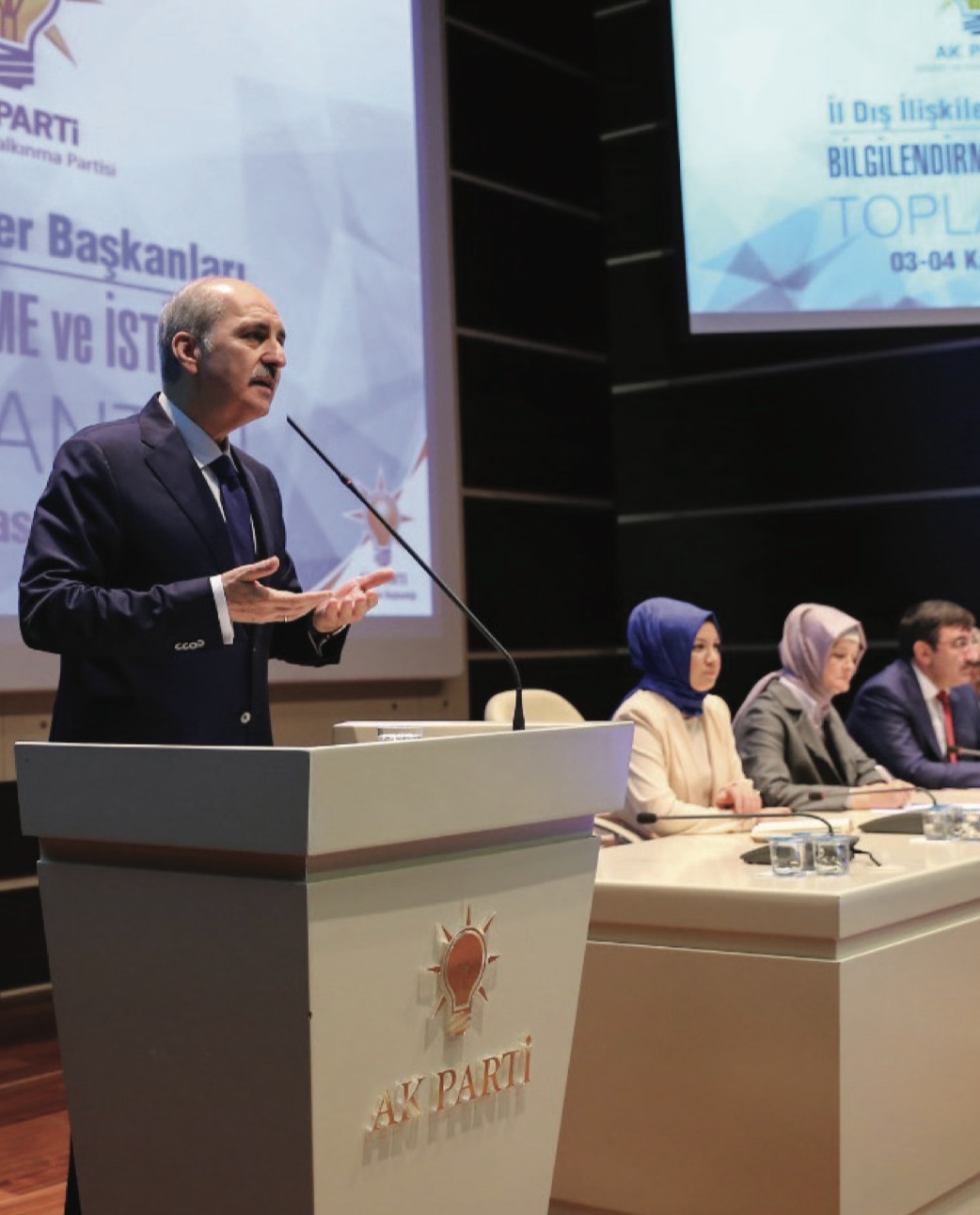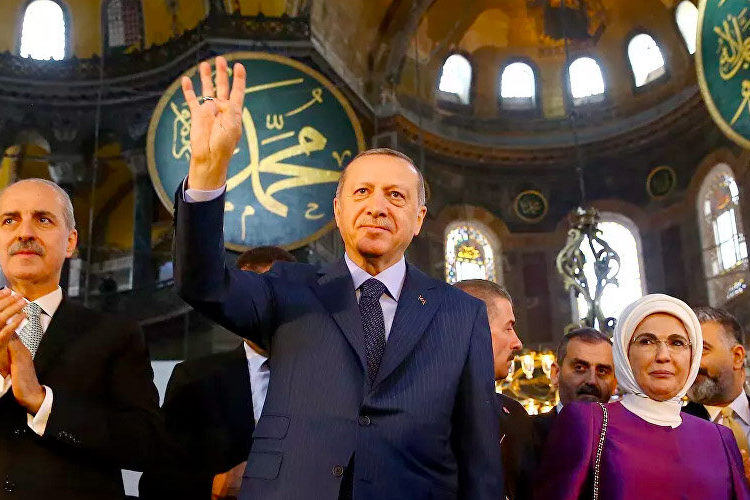Numan Kurtulmuş, a lawmaker from the ruling Justice and Development Party (AKP), was elected speaker of the Turkish Parliament last week with the support of the nationalist and Islamist parties that are coalition partners of the government. Kurtulmuş was the first politician who publicly said Turkey should withdraw from the Istanbul Convention, a treaty to combat violence against women and promote gender equality, of which Turkey was the first signatory.
President Recep Tayyip Erdogan officially announced Turkey’s withdrawal from the convention through a decision published in the Official Gazette on March 20, 2021. However, legal objections were raised, claiming that the withdrawal from an agreement that Turkey had become a party to through parliamentary approval cannot be made solely by the decision of the president. A lawsuit seeking the annulment of the decision was filed, and on January 2, the Council of State dismissed the case, confirming Turkey’s official withdrawal from the convention.
On July 1, 2020 Kurtulmuş expressed his dissatisfaction with the Istanbul Convention on a joint TV show during which he replied to questions from journalists representing 30 local TV stations. He voiced the possibility of withdrawing from the agreement, stating that it was possible to do so.
“As a person who has read the Istanbul Convention multiple times, including its English version, and worked on it, I can say with confidence that the signing of the convention was indeed a mistake,” Kurtulmuş told the journalists.
He also emphasized two significant points in the convention that diverged from the people’s core values. The first related to the inclusion of gender identity, while the second concerned sexual orientation preferences. Kurtulmuş said these concepts, although not the only problematic aspects, had increasingly become tools exploited by LGBTQ and marginalized groups. He expressed concern that such concepts were being used as a shield for their activities.
When one journalist said, “I think this is the first time we’re hearing such things from the AKP,” Kurtulmuş replied, “Many of our colleagues share this view.” Kurtulmuş later stated, “The claim that ‘If there is no Istanbul Convention, violence against women will increase’ is also an incorrect argument. Gender equality is one of the fundamental issues of our culture and is also protected by Turkish law.”
When asked about the possibility of withdrawal from the convention, Kurtulmuş said, “Since there is such a great expectation among our people, we can’t remain indifferent to it.”
Amid discussions prompted by Kurtulmuş’s statements, support for the Istanbul Convention came from various women’s organizations, including the Women and Democracy Association (KADEM), where President Recep Tayyip Erdogan’s daughter, Sümeyye Erdogan Bayraktar, serves as vice chair of the board. These organizations endorsed the convention, highlighting the importance of its provisions for women’s rights.
However, President Erdogan didn’t hesitate to make the controversial decision to withdraw from the Istanbul Convention, aiming to secure the support of Islamist parties and mobilize his conservative grass roots, particularly on anti-LGBT rhetoric. Erdogan argued that Turkey’s domestic laws were sufficient to prevent domestic violence and violence against women, eliminating the need for the convention.
During the campaign for the May 14 presidential election and runoff on May 28, Erdogan relied on allegations that the opposition was collaborating with terrorists and would grant rights to LGBTQ people. However, neither Erdogan’s main opponent, Kemal Kılıçdaroğlu, nor the nationalist and Islamist parties supporting him in the Nation Alliance (Millet İttifakı), made any promises or statements regarding LGBTQ rights. Erdogan aimed to regain the support of conservative and nationalist voters who were no longer considering voting for him, given the worsening state of the economy in the country.
Even in his victory speech after winning the election, Erdogan made statements that were unfavorable to LGBT individuals.

Kurtulmuş, who comes from the Islamist National View (Milli Görüş) movement, made a significant political move by leaving the Virtue Party (Fazilet Partisi) and founding his own party. In 2002, following a split within the Virtue Party, Kurtulmuş established the People’s Voice Party (Halkın Sesi Partisi, or Has Party), positioning it as a conservative and democratic alternative.
During his tenure as Has Party leader, Kurtulmuş openly criticized the AKP government on various fronts. He voiced concerns about corruption, the concentration of power in the hands of the executive, the erosion of democratic institutions and limitations on freedom of speech. Kurtulmuş argued for a more inclusive and participatory political system that respected the rule of law and protected individual rights.
Kurtulmuş’s statement, “They came like Harun but turned into Karun,” referring to the corruption allegations involving Erdogan’s party, has become very popular in Turkish politics. In this context, “Harun” refers to Prophet Aaron, symbolizing honesty and justice, while “Karun” refers to Qarun, symbolizing wealth and ambition according to traditional Islamic belief. Therefore, the expression implies that individuals or groups initially perceived as virtuous or well-intentioned can succumb to greed and corruption over time. It has been widely used in Turkish politics to criticize those who have undergone a negative transformation, particularly in relation to allegations of corruption or abuse of power. His statement continues to be frequently used against Kurtulmuş by the opposition.
However, in a surprising move, Kurtulmuş made the decision to merge the Has Party with the AKP in 2012. This decision raised eyebrows and led to questions about the consistency of his previous criticisms. Some viewed the merger as a strategic move to maintain political relevance and secure a stronger position within the AKP, while others saw it as a compromise of his principles.
Following the integration of the Has Party into the AKP, Kurtulmuş’s criticisms of the party seemed to fade into the background. His public statements became more aligned with the AKP’s official stance, prompting speculation that he had to conform to the party’s directives to maintain his position of influence.
Kurtulmuş has served in ministerial roles, including deputy prime minister (2014-2016) and minister of culture and tourism (2017-2018). His most recent position has been deputy chairman of the AKP since 2018.
Nordic Monitor previously reported that Kurtulmuş in 2020 during a video conference organized by the Önder Foundation, the oldest alumni association of religious imam-hatip schools in Turkey, said the conversion of Istanbul’s Hagia Sophia into a mosque was a dream come true for his generation, adding that [freeing] Jerusalem should be Turkey’s next responsibility.
https://nordicmonitor.com/2020/08/former-deputy-prime-minister-kurtulmus-sees-jerusalem-as-next-target-after-hagia-sophia/












